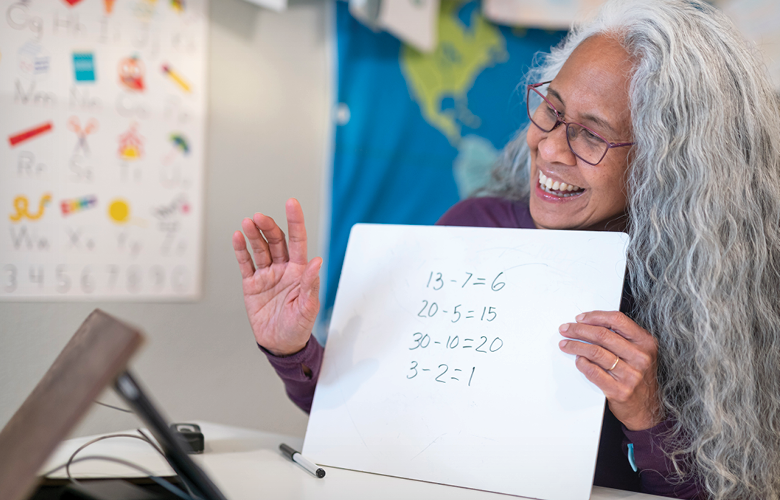
What. A. Year.
Pandemic, political upheaval, shuttered small businesses, separation from family and friends, overwhelmed hospitals, record-setting weather, and closed school buildings are just a few of the lemons we have faced. We remember those whose journey ended during these challenges, offer sympathy to those who lost loved ones, and extend compassion to those grappling with the trauma of the past year.
As we reflect on the past 12–15 months, we realize that we have managed to work through some of the challenges. The Math for All teachers, facilitators, project staff and leaders have shown the flexibility, resilience, and creative problem-solving that have come to be an integral part of being an educator. Together, we have turned some of the lemons into lemonade. Though the challenges were forced upon us, we rose to the occasion, dug down to our deepest resourcefulness, and turned the challenge into opportunity. Many positive changes have come to fruition with potential for long-lasting impact.
Under ideal circumstances, being a teacher takes guts, compassion, hardiness, and a lot of energy. This year has increased the need for these characteristics many times over. But our teachers have responded magnificently. They have learned new technologies to connect with students, to replace classroom tools such as manipulatives and anchor charts, and to bring resources to students (e.g., audio books, dynamic software) to foster collaborative learning. Teachers garnered renewed understanding of the importance of social-emotional health, both for their students and for themselves. In many cases, this gave teachers a more complete picture of each student, which allowed them to meet each student’s needs.
Teachers have reported that they are impressed with their students’ resilience and improvement. Some students who were previously reticent to speak out in class have joined and even led discussions in breakouts. Teachers shared stories of small groups of students learning independently without teacher guidance or intervention, leading to the realization that maybe the students don’t need as much “hand-holding.” One teacher shared that many of their students’ identities as learners have turned more positive as they realized they “could do this,” and they have become more excited about learning.
As for the Math for All team, we have noticed and honor teachers’ improved willingness to take risks and try new things. This speaks to their commitment to the students, which is at the heart of it all. They have tried new technologies, instructional strategies, curricular materials, and even jokes—all in the name of making it work for their students.
We leave you with some questions to ponder.
- What’s your 2021 lemonade?
- What change have you seen this past year that you hope will continue?
This post is an abbreviated version of a post that was originally published on the Math For All blog.
| Matt McLeod is an EDC senior project director, mathematics educator, and expert in K–12 instructional design and professional development. |


Add new comment